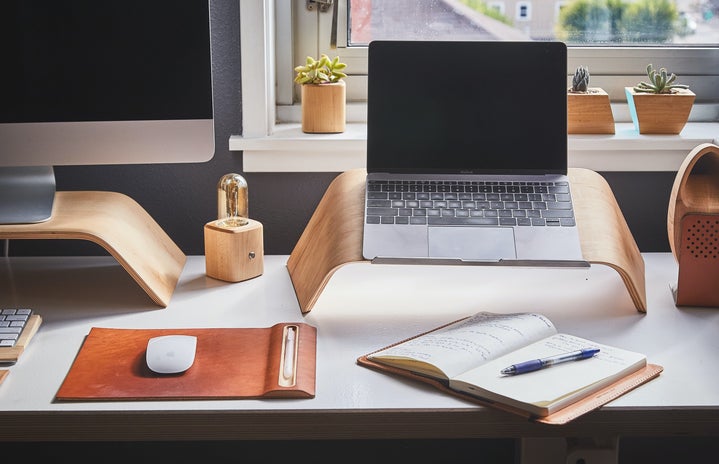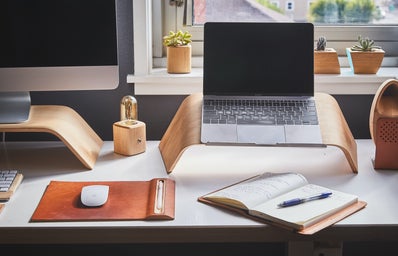COVID has been a stressful time for everyone. However, many have taken this difficult time and turned it into something positive. They’ve spent more time with family, worked on personal projects or began to realize what really matters. For me, I realized how fast the world was moving and how easy it was to get caught up in deadlines, social events and social media. My brain was always on the next thing or what I didn’t do. I was living in the past or future, more than the present. I decided to stop viewing COVID as a setback and instead as an opportunity to figure out what I want, what makes me happy and how to enjoy life. These are five tips that I found helped me engage in mindfulness.
- Use scents to your advantage
-
Your five senses are integral to mindfulness, especially when you are first starting out. It is challenging to change your entire way of thinking and processing, so tangible things can help you get started. A 2013 study on using aromatherapy on hospital patients with stents fitted found that they have a reduced level of anxiety and increased sleep compared to a control group. Many studies have similar findings. While some people need a scent-free space because they get migraines, many benefit from specific scents such as candles or diffusers (as long as you don’t have pets). Some find lavender and sandalwood calming, but everyone has their preferences, and it is trial and error. Here is a site that outlines the effect that scents might have on you.
- Increase natural light
-
Try to keep your lights off for as long as possible and instead rely on natural light. Numerous studies show that natural light helps us stay focused, energized and even decrease feelings of depression and anxiety. Not only do we get a natural boost of serotonin from the sunlight, but different colours of light affect our bodies. The colder the light source is, the more productive we will be. Daylight is considered a cold light source. When exposed to it, our body naturally lowers our melatonin levels, keeping us aware and active.
Meanwhile, warmer colours, such as what our light bulbs produce, don’t have this effect. If you are trying to go to sleep, then using a salt lamp could be beneficial because it creates a warm, orange tone, which raises our melatonin levels. If you live in a basement apartment and don’t have a window, make an effort to get outside, or look into what colour your light bulbs produce.
- Play Different Vibrations
-
The Globe and Mail wrote an article about the healing effect certain sounds have on the body and mind. If you go on Youtube or Spotify, you can type in “vibration for sleep” or “vibrations for healing” and find music created to help you achieve your specific goal. Playing music like that around your house when you’re trying to be creative, or meditating or relaxing, is super helpful at getting you into whatever state you need. I personally use this one for sleep and this one for meditation.
- Have Designated Spaces For Intentions
-
With COVID, it can be challenging when you live and work in the same space. Try to have as much separation as possible, especially from your bed. You want your body to associate bed with sleeping, your meditation corner with relaxing and then one space for working and productivity. If you have a small space to work in, try setting up curtains or moving your furniture around in a way that separates different sections of the room. It may not look aesthetically pleasing, but it can help your mind associate certain areas with other things, allowing for separation from work and time to focus on your personal needs.
- Have a flower or herb garden
-
Gardening has so many mental health benefits. It helps develop a growth mindset and let go of perfectionism. It encourages spending time outside or with loved ones and connects you to the planet. It even helps with depression and anxiety. There’s also a sense of accomplishment and wholeness in growing food and then eating it. You can even create an intention within your garden by picking specific plants for a particular purpose. Some create night gardens or butterfly gardens. Some believe that particular plants can bring you good luck or love. No matter what you believe in, gardening is a great way to connect with not just the Earth but yourself and tangibly engage in mindfulness.
Mindfulness is really difficult. We’ve programmed ourselves to believe productivity is what matters the most, and it’s about what you do versus what you are. It’s hard to break that thinking pattern. Don’t be discouraged if you can only meditate for five minutes at a time or if you just can’t stop your brain from constantly going. It’s a skill, and it takes time to hone. Focusing on my environment helped me stay engaged with my practice, which was life-changing.
And it can be for you too.



